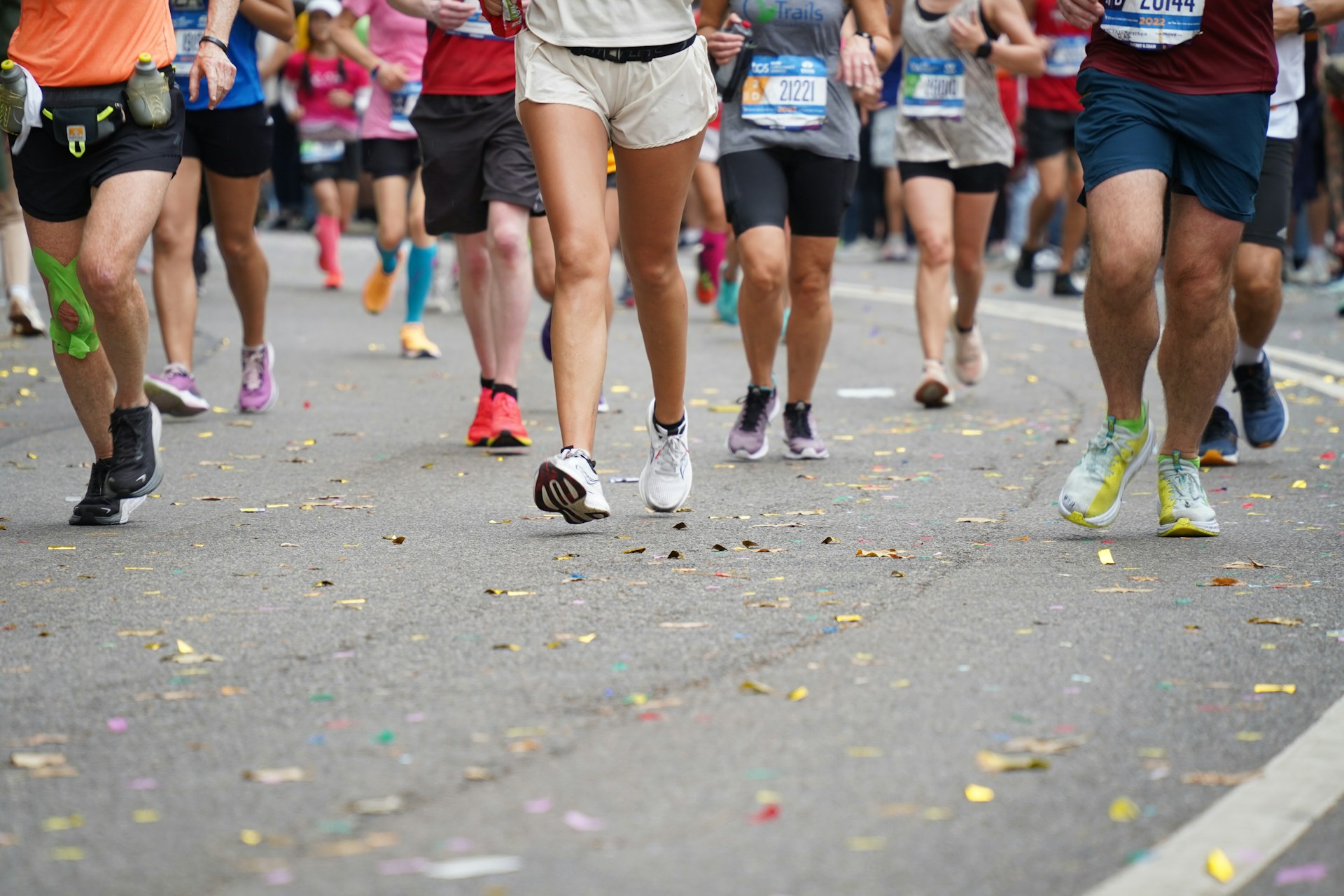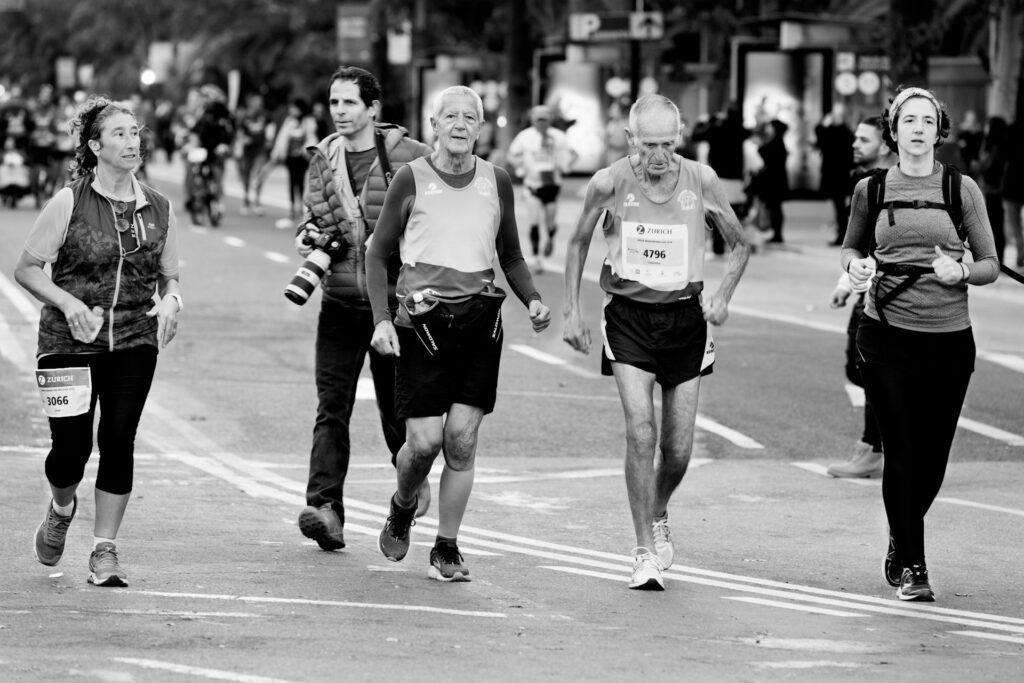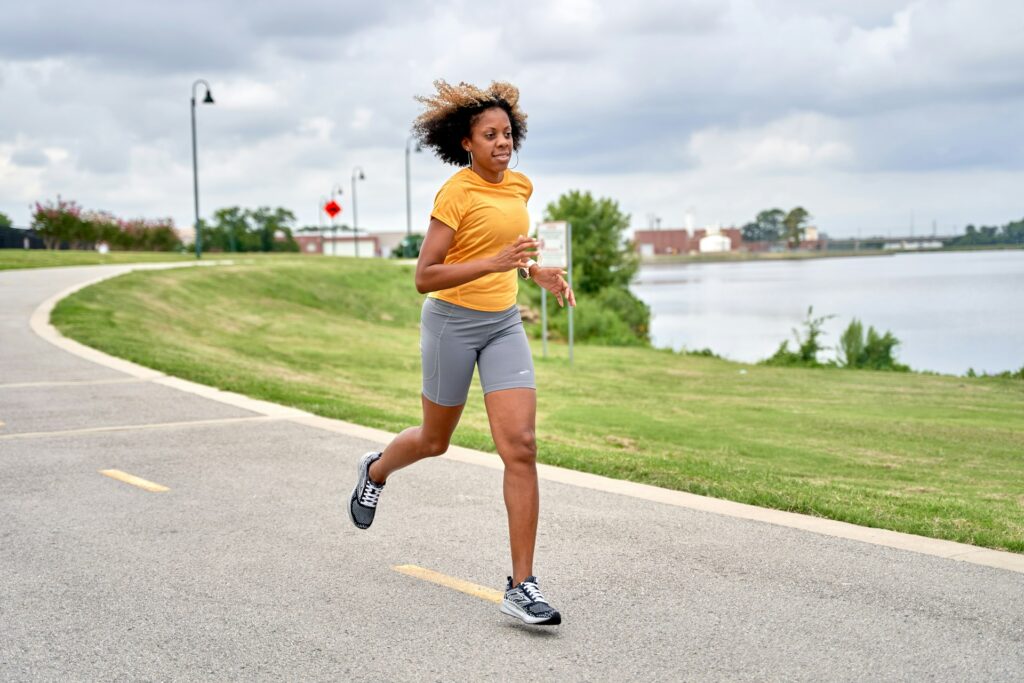
Body + Mind is reader-supported. We may earn an affiliate commission when you buy through some of the links on our site.
Five kilometers is a great starting point for most beginner runners, and sometimes the extent of what people are willing to try. When someone is just starting, they often wonder what the average 5K time is by age, gender and experience. Here’s a breakdown of what experts suggest based on your physiology and abilities.
The average 5K time differs by gender and age. For one thing, there are several physiological differences between men and women, while aging impacts physical performance. Men are usually faster than women. Likewise, even the most advanced runners will slow their pace as they age.
Generally, the average 5K time for men is 22 minutes and 31 seconds, and 26 minutes and 7 seconds for women. The 5K world record is actually held by Joshua Cheptegei from Uganda. He ran a 5K in 12 minutes and 35 seconds in 2020.

Gender only plays a part in 5K finish times — your age matters, too. Data collected by Livestrong suggests that you can complete a 5K in the following times for these age groups:
Age and gender are good indications of the average time it takes to complete a 5K. However, other factors — fitness level, consistent training, terrain, genetics and motivation — are also determinants.
When you’re just starting to run, completing a 5K race may seem like climbing Mount Everest on your first time out. While it is only a 3.1-mile distance — or about 50 city blocks — it’s enough to get your heart pounding every time your shoes hit the ground. To improve your 5K time, you should build these four strategies into your regimen.
Every runner needs a good pair of sneakers to prevent injury and maintain foot health. Although online shopping gets a point for convenience, buying running shoes in person is best. An expert at a specialty shoe store can properly measure you and analyze your gait pattern.
For comparison, you should bring your current shoes, socks and inserts to your appointment to compare what you’ve been wearing to what you’re trying on. Typically, you should replace your shoes every 300 to 500 miles, so keep a training log of when you use them and how far you’ve gone.

Runners aiming to improve their performance or beat the average 5K time should work out. Strength training helps build muscle, strengthen joints and bones and reduce the risk of injury.
About 50% of runners get hurt yearly with runner’s knee, stress fractures and iliotibial band friction syndrome in their hopes. Another 25% end up with calf injuries and Achilles tendon injuries. Calf exercises like single-leg raises, stair sprints, toe walking and jump roping enable your legs to absorb the impact better. Just remember to do a significant amount of stretching before every workout.
You should eat a full meal containing protein and complex carbs two to three hours before you start running. If you haven’t eaten in three or four hours, a carbohydrate-rich snack 30 minutes before you lace up and hit the track will give you the glucose boost you need.
Runners should fill their diets with the following foods:
Although many diets might tell you to cut back on carbs, they are critical to runners’ nutrition. Running uses up blood glucose and glycogen stores for fuel and endurance.
Committing to training to achieve or exceed the average 5K time is commendable. However, you must allow yourself to rest and recover after each run.
Physical therapist Jessica Yeaton at UCHealth SportsMed Clinic in Steamboat Springs reminds runners that remaining in a high-cortisol state hinders healing and may cause injury or illness. To ensure your body receives adequate rest, you should build recovery time into your exercise regimen, such as setting aside days where you take things easy. In fact, these periods can improve your performance.

It’s not so simple to state the average 5K time without factoring in gender, age, fitness level and environment. Men are often faster than women, while your pace slows as you get older. Experienced runners will also likely finish faster than a beginner. Weather conditions, altitude and terrain also influence your run time.
However, to be an above-average runner, you should aim to complete a race under 35 minutes — only 30% of 5K participants finish before the 30-minute mark.
The average 5K run time for men is 22 minutes and 31 seconds.
The average 5K run time for women is 26 minutes and seven seconds.
You’ll begin to run at a slower pace as you age. Young people between 0 and 29 can finish in 40 minutes for women and 32:30 for men. For those in their 40s, women should aim for 42:30 and men should set a goal for 35 minutes. Women and men over 70 can complete their 5Ks in 53:20 and 45 minutes, respectively.
Beginner runners can finish a 5K in 30 minutes if they train consistently for eight to 10 weeks. Other sources suggest a slower pace for the first time out.
Conversely, advanced runners say a good run time is eight minutes per mile, finishing in 26 minutes. The most experienced athletes can finish in under 20 minutes.
Beating the average 5K time based on gender and age may be your goal. You might also just want to exceed your personal best. Regardless, running a 5K is about the experience and how it makes you feel. Sometimes, you’re best off forgetting about time and enjoying the moment.
Your email address will only be used to send you our newsletter, and at any time you may unsubscribe. For more information, see our Privacy Policy.